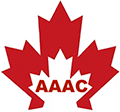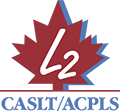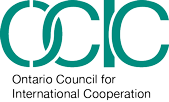What is TESOL Canada?
TESOL Canada is an accrediting or certifying body that deals with evaluating teachers, students, and institutional members. TESOL is an acronym for ‘Teaching English to Speakers of Other Languages’ which refers to the professional field of TESOL and ESL teaching. It is not only Canada’s largest recognized ‘Online TESOL Centre’ but also the ‘only official centre’ to provide standards and accreditation to Teachers of English TESOL, French TFSOL and Spanish TSSOL globally. It needs to be clarified that TESOL Canada is not a language school and does not provide English-language classes just because the acronym is the same as the abbreviation for the field.
TESOL Canada comprises of 64 Institutional Members in Canada and abroad, with almost 1,800 individual members up until May 2017. The ten board members represent the 10 Canadian provinces & 3 territories. The main objective of the board is the advancement of TESOL standards in Canada with the representations of Canadian standards globally. Apart from that, TESOL Canada also caters to the research and development sector, updating TESOL Standards globally.
What are the differences between TESOL, TEFL and TESL?
TEFL and TESOL both are acronyms. TEFL stands for Teaching English as a Foreign Language, whereas TESOL stands for Teaching English to the Speakers of Other Languages. The acronyms don’t have much difference. It is up to some countries’ preference to call English a Second Language or a Foreign language. Hence the terms TESOL and TEFL.
TESOL Canada certifies you for both TESOL and TEFL as they are the most sought-after qualifications in this field and is recognized across the globe. If your prime objective is to teach English abroad, you may want to contact the department or ministry of education in the country where you plan to work for more information about that country’s education. Usually, most employers abroad look for applicants who have, at least, a Bachelor’s degree along with a TEFL/TESL/TESOL certification.
What are the basic requirements to teach ESL/EFL?
The basic requirements are job and employer specific and might vary position wise. It depends on the institution as to what qualification they are looking for in a potential educator. Generally, the basic requirement for teaching English in private language schools across the globe is a TESOL/TEFL/TESL certification from a reputed and globally accepted organisation along with a bachelor’s degree (in most countries, not all).
If you are willing to teach ESL but lack a bachelor’s degree then it is recommended to go through a TESOL Diploma program rather than a Foundation or an Advanced course. Depending on the choice of location, the requirement for level of certification may vary. While a TESOL Foundation program is suitable for working in Language Schools of Beijing & Mongolia. Whereas, working in the JET program, Japan, will require a 450-hour TESOL Diploma program. Such requirements keep varying from one country to another. E.g. working in Ontario's LINK, the basic requirement is TESL Ontario approval, while an Advanced TESOL certification of 300-hour duration is in demand for working in private language schools. Academic goals are another crucial factor. If you are looking forward to gain a Master degree in Education or a Ph.D. in Education, it would be in your best interest to complete a P G Diploma program and obtain study credits toward a Master degree rather than a TESOL certificate. A TESOL Foundation certification is apt for employment purposes. But for academic advancements, a P G Diploma in TESOL program is highly recommended.
If I’m from any other background that is not related to TESOL, do I need another degree?
Majority of TESL/TEFL jobs require some academic context in TESOL or some background in the field of Education, English, and Linguistics. If you have a background in some other field apart from the mentioned ones, you might consider completing a Diploma or P G Diploma in TESOL. If your degree is in a related field, a TESOL Foundation program can be a good start. The TESOL Diploma program is recommended in case of not having a proper bachelor’s degree where one has only covered few years of college.
I do not hold a degree or certificate in TEFL or TESL, but I’d like to teach ESL or EFL. Are there any job opportunities?
There are lots of opportunities across the globe. Looking for a paid position while lacking basic criteria will only fetch low wages, no benefits, and long work hours OR no offers at all. To grab a decent offer that reaps a regular salary, it is necessary you get TESOL certified in the Foundation level that is accepted and complies with the country principles where you are applying for. If you don’t have a degree, you can still apply for jobs, but without a TESOL certification, it will be very difficult to grab any decent offers.
If English is not my first language but I'm proficient in it, am I still eligible for teaching ESL?
Definitely! There are ESL/EFL employers out there who might prefer someone proficient in the students’ mother tongue and in English or anyone with the experience of learning English as a second language. In a contemporary and multicultural society, almost 50 % of teachers are non-native speakers. TESOL Canada does not allow discrimination that affects our members, including discrimination based on the first language, religion, sex, and race or nationality.
Is it necessary to speak other languages (Chinese, Spanish, etc) to teach English abroad?
It is not necessarily required to speak a second language to gain a teaching position, but it surely benefits and helps to blend in with the local culture. If you are living and working in a non-native country, it is not necessary to speak that country’s language. But it will surely make your stay more comfortable and rewarding if you are aware of and acquainted with the local language.
What if I’m already a teacher?
A globally accepted and recognised TESOL certification will always give an edge while enhancing your teaching skills and providing you with a world of opportunities. Even if you’re already in the field of teaching, a TESOL certificate is great for you if you have a passion for teaching and travelling.
What are the advantages of a TESOL Certificate?
Laying your hands on an internationally recognised TESOL Certificate/TFSOL or TSSOL will give your career a much-needed boost. Successful candidates from our member institutes have no problems while looking for teaching jobs across the globe. A life of teaching and travelling will give you a chance to learn about other cultures and gain invaluable experience regarding varied characters and lifestyles.
What if I am willing to further my post-secondary education?
Graduates willing to continue in the field of education will find that their experience in teaching abroad becomes a valuable strength while applying for advanced degrees.
Need help? Call me back
Get counseled by one of our representatives- Ask for a call back.







